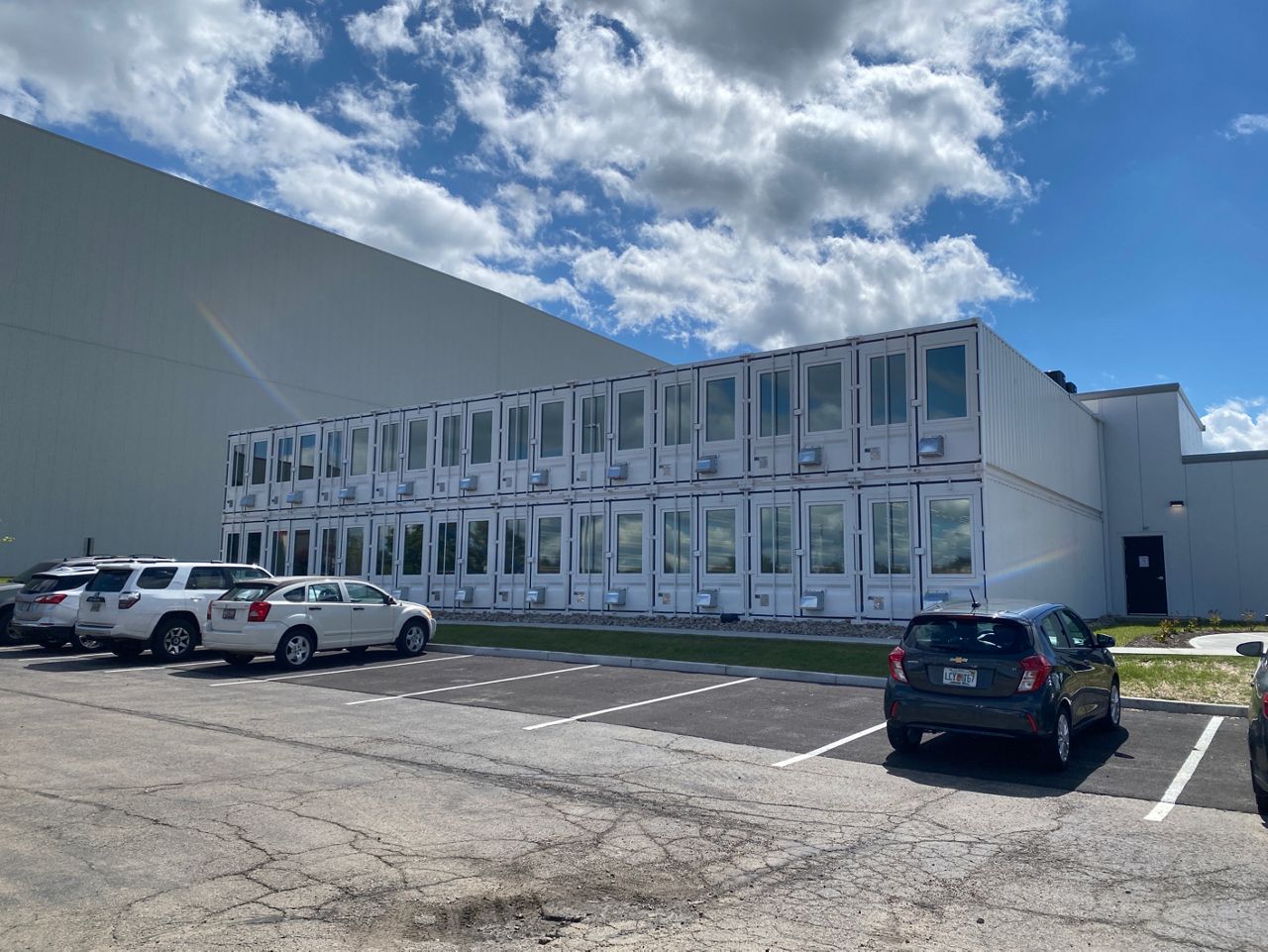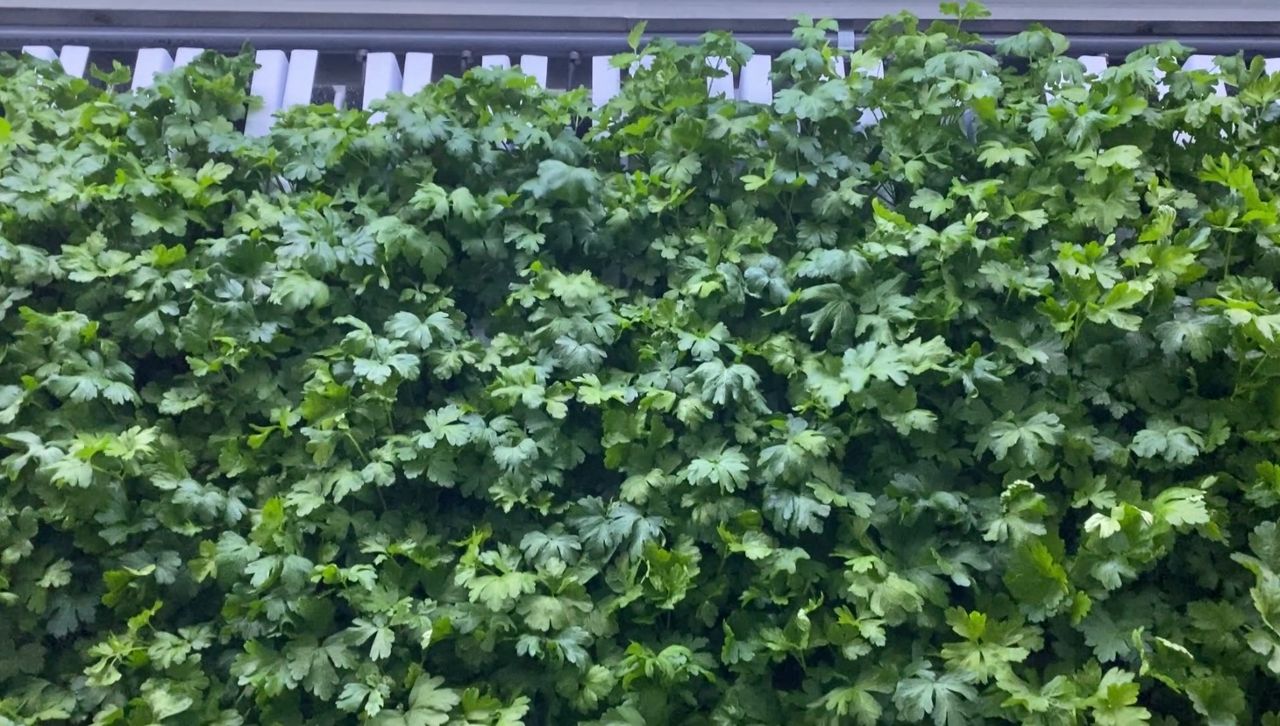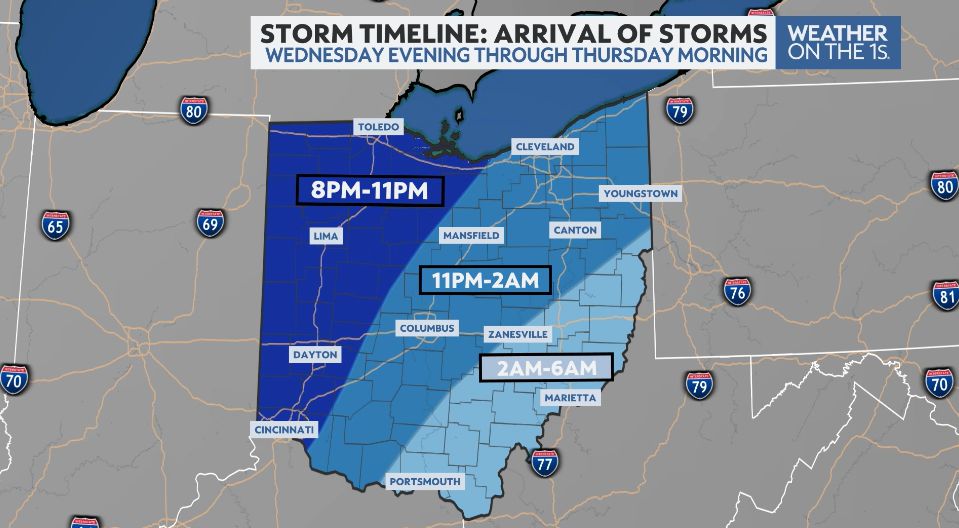SPRINGFIELD, Ohio — September usually means the gardening season is coming to a close for most growers, but at a new Springfield farm, things are just getting off the ground.
In the first few weeks of the month, Square Roots harvested its first batch of greens and herbs, set for immediate distribution as the next crop takes root. Even without soil, sunlight, and less water than conventional agriculture, Leah Bahan-Harris, the campus general manager, believes it should take a month to go from seed to sell thanks to the farm’s hydroponic facility.
Square Roots is a national organization with farm campuses across four states. Springfield’s is Ohio’s first and located just outside the Gordon Food Service Distribution Center, Bahan-Harris said it’s set up to get its greens out to customers customers quickly and sustainably.
“Our goal has been to cut the supply chain of distribution and get directly to customers,” she said. “Right here everything goes from seed, it goes into grow, then we produce it and pack it and go to the distributor so it goes through a lot less hands.”
It also travels far fewer miles than most U.S. lettuce, more than 90% of which comes from Arizona or California. Square Roots focuses on supplying local markets, expecting most of its Springfield product to end up in Ohio or Indiana stores and restaurants.

“From us, it either goes either to our driver to the store or to GFS to the store,” Bahan-Harris said. “So it could be less than 24 hours after we harvest that you’re eating our fresh products.”
With ten years of experience in farming and food service, Bahan-Harris said a facility like Square Roots is a first for her.
“I’ve been a farm manager and a farm hand,” she said. “Most of it has been USDA verified organic in the soil.”
Growing up in a Dayton food desert, however, Bahan-Harris said she was drawn to an organization that puts such an emphasis on growing local and supplying local communities year-round.
“Being able to have a controlled environment where we can grow, and looking for more sustainable opportunities as opposed to growing outside,” she said. “Square Roots and their values has been a perfect fit.”
The system runs on differentiated zones based on what greens are growing where. Each zone has a tank of water that’s pumped through the system along with the nutrients a plant would typically draw from its soil.

The water either runs through the vertical gardens, where Square Roots grows herbs like dill, parsley and cilantro on the walls, or in the more traditional incubator rooms where it runs across the roots of the lettuce, basil and micro greens, before flowing back into the water system.
“That’s where all of the nutrients, all of the good things, that came out of the plants are getting put back in and then the water is being used again after it's purified and ready to go,” Bahan-Harris said.
Even the building itself is recycled, built from shipping containers.
Once the facility is at full capacity, Square Roots claims its Springfield campus will produce up to 2.4 million packages of herbs and leafy greens annually.










